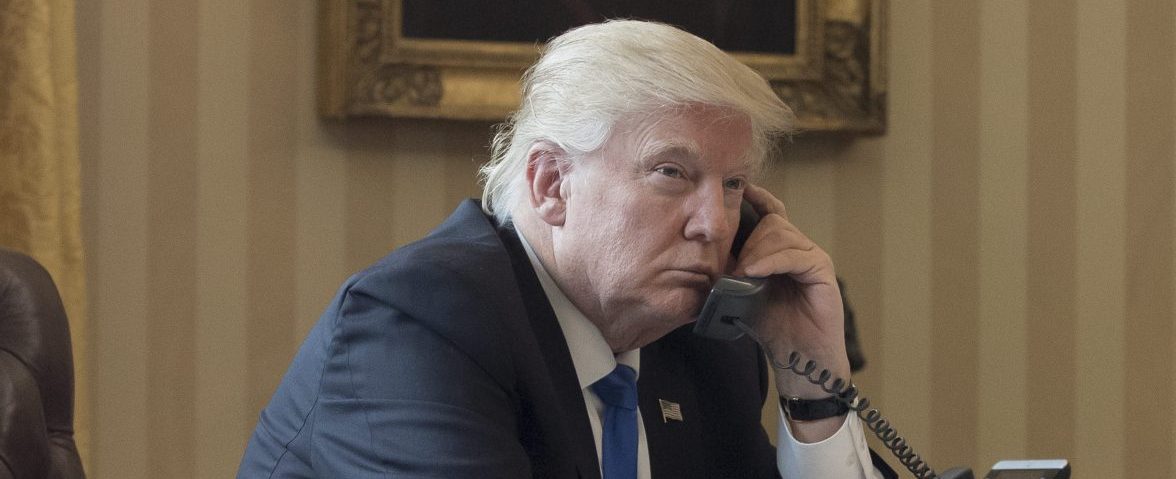The US House of Representatives and Senate overwhelmingly adopted a Russia, Iran and North Korea sanctions bill. It predictably provoked a harsh response from Russian officials. The head of the Federation Council’s Foreign Affairs Committee, Konstantin Kosachev, called for a response that would be painful for Americans. Deputy Foreign Minister Sergei Ryabkov said that Washington is “a source of threat.”
Several Russian experts agree on the unprecedented nature of the latest events. Program Director at the Russian International Affairs Council (RIAC) Ivan Timofeev wrote that the latest sanctions “have left no room for compromise” in Russian-US relations. Head of the Council on Foreign and Defense Policy Fyodor Lukyanov believes that the formalization of the sanctions makes bilateral cooperation almost pointless. Deputy Editor-in-Chief at Izvestia Boris Mezhuev has concluded: “They are trying to break us.”
However, I don’t see anything extraordinary in the latest developments. There have been ups and downs in Russian-US relations before, and what we see now is another down period, and it is not the worst in our history.
I do not believe the sanctions are part of a US strategy to contain and destroy Russia, but are rather the consequence of impulsive actions and anger of the US establishment, which is nurturing the false premise of American hegemony.
The current anti-Russia campaign in the United States is nothing like the periods of national unity against an external threat. The White House is not leading this campaign or trying to rally the support of Congress, the press or the public. On the contrary: Congress is dragging the White House along to the jeering of the press and public indifference. The nation has not risen as one to fight an external enemy like it did after the ‘Axis of Evil’ speech by George W. Bush. On the contrary, Washington is a place of confusion and mutual suspicion. The public is more worried about problems that are not connected to Russia. But it is interesting to watch the sparks fly in Washington on television.
The anti-Russia sanctions are not part of a strategy but rather the lack of one. They are the product of the most disorganized US political process in decades. President Donald Trump has lost the initiative, has not stopped the loss of morale among his aides and supporters, and has antagonized the press and his opponents in Congress. He has been paralyzed and is almost completely powerless.
The sanctions are mainly the result of political infighting in the United States. When Trump won the election, his opponents began pressing for impeachment and are using the alleged “collusion with Russia” (tax avoidance, abuse of power, or the harassment of women – pick one) as a strategy to remove him from office.
In the six months since the scandal over Russia erupted, not a single hard fact to implicate Trump’s collusion with Russia has been revealed. The ongoing anti-Russia campaign rests on allusion, paranoia and virtual reality. At some point, this campaign took on a life of its own as can be seen from CIA Director Mike Pompeo’s statements on Russia as one of the biggest threats to the United States.
This is evidence of plummeting common sense and inaccurate assessment by officials in key positions. It concerns more than just Russia’s alleged interference in the US presidential election. US intelligence services have attributed – with “a high degree of probability” – the blame for the chemical attack in Syria in April this year to the Syrian government. The top event this week was the scandal over alleged Russian arms deliveries to the Taliban in Afghanistan. In May, Russia was accused of hacking Qatar’s government websites, which allegedly provoked a crisis. Many people say that all of these events were orchestrated. But I would blame amateurism and paranoia, considering the unprofessionalism of key officials in US diplomatic and security bodies. By the way, an iceberg the size of Latvia has broken away from Antarctica. It must be Russia’s doing, right?
Washington’s current Russia policy is not a strategy as much as it is acting on autopilot. US actions can too often be described “act first, think later.” We have seen it in live news shows. The US media are not writing about the possible international consequences of the anti-Russia sanctions. They only write about Congress’s annoyance at the alleged Russian interference and the dubious nature of Nord Stream 2. The media are acting; they will think about the consequences later, probably next week.
We can help our American colleagues assess the potential strategic consequences of their latest moves.
First, the United States is again acting not so much as a global leader but as an egotist who gives little thought to its closest allies’ interests. The penalties for many German industries have almost become part of US policy. The European Commission has openly expressed its disappointment at unilateral US actions and has said that it would respond if Europe’s interests are damaged.
Second, the sanctions regime will be further undermined by the disregard for the principle of consensus in EU-US relations. Washington has refused to coordinate its actions with Brussels and has even imposed painful restrictions on it. This will give Russia new opportunities in relations with the key European countries that will be affected by US anti-Russia sanctions.
Third, the United States has actually hamstrung itself. It is unclear what it can discuss with Moscow now, or how it can encourage Russia’s cooperation on issues of concern to the United States.
Fourth, an antagonized Russia will work for closer rapprochement with China on all issues, including security. Russia and China have held joint exercises in the South China Sea and the Baltic, and we can easily imagine them holding military drills in the Straits of Florida near Cuba. I don’t think this would be in the United States’ long-term interests.
And lastly, political stratification will increase in the United States. Knowing Donald Trump, we can assume that he won’t let things slide. He will find a way to strike back at Congress. This will provoke a new round in the political crisis in the United States, but this is not Russia’s concern.
Trump has not made effective defense plans for the eventuality of political infighting. He has lost the initiative to his opponents. Despite a good personal relationship between the Russian and US leaders, Donald Trump is losing his relevance in Russian-US relations.
So, Russia will respond to the latest sanctions. This response should be strong symbolically, but it must not fetter Russia or run too far afield from potential allies in Europe and Asia, primarily Germany and Japan.
Trump’s election victory has resulted in a long period of uncertainty in Russian-US relations. Clinton’s victory, which seemed to be more probable throughout the presidential race, would not have done this. If she had won, Russian-US relations would have soured immediately. There is still no hope for normalization in our bilateral relations now, but there is no uncertainty either. Russian-US relations have again become clear, which allows us to make plans for the future, and making plans is a key condition for a cohesive foreign policy.
First published at valdaiclub.com












